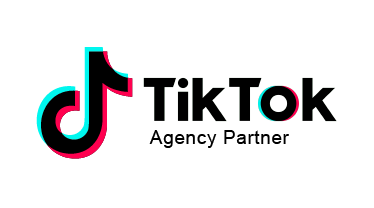Ways To Improve SEO Strategy For Travel Websites
SEO is an effective long-term marketing plan that ensures a site’s presence in the top-ranking positions for extended periods. Most people will restrict their selections (and searches, for that matter!) to sites that appear on the first page of search results. That leaves travel businesses with two options: pay-per-click advertising or laborious SEO.
If you run a travel website or blog and are new to SEO and Digital Marketing, the first thing you should learn is why SEO is important for the success of your website and what are the benefits of SEO for your business.
So, let’s explore what comprises successful SEO for travel websites.
Table of Contents
Make Your Site Mobile-Friendly
Google has introduced the mobile-first index. This means that many users viewing your travel website will do so through mobile. People are more likely to purchase tickets on your site using a mobile device.
So you’ll have to stay up to date with Google’s mobile ranking factors, and make sure of the following:.
- Use responsive web design
- Reduce website load time.
- Optimise your images:
- Don’t use small text:
- Avoid using small touch elements:
- Flash Animation:
- There should be no needless interstitials.
Pave a Path to Your Site with SEO Keywords Research
Words and phrases that pluck site pages from the depths of the Internet and place them right in front of visitors’ eyes are pretty much the foundation of SEO strategy. So, how do you find profitable keywords? Understanding your consumers’ buyer journey and search intent is the first stage, but this is only the beginning.
Because you are a travel agency whose job it is to transport people from one location to another (with style!), your keywords must be relevant to your industry. That is, be as detailed as possible. If you can provide your clients with a ‘plane from London to Paris,’ that is the term you should use.
If you can help them ‘book a hotel in Paris’, that’s another major keyword!
Variations on the phrases are acceptable because search engines are able to recognise which set of words mean the same thing.
Long-tail keywords are long, descriptive sentences that explain exactly what your prospective buyers want and convert for. Long-tail keywords receive less search volume but typically have a greater conversion value since they are more specific.
When you are prepared to meet people’s needs, they will choose your services over those of another organisation. You have to give your consumers room to be service-specific and destination-based when selecting the best travel-related keywords for your website. Ambiguity in the travel business is not the best idea.
Leverage Social Networks
Humans are impressionable beings. Social networks and visual media can play a great role in leveraging that. A single well-crafted shot may inspire others to pack their bags and post their adventures on Facebook and Instagram.
Around the World in 80 Posts – Start a Blog!
There is no better strategy to increase the number of backlinks to your website than to create new content. Breathtaking landscapes, historical sites, and cultural events are excellent sources of blogging content. Tell your readers various stories that will entice them to travel with you – and then share your own!
Link Building from Authoritative Travel-Related Sources
Travelers will prioritise the sources they trust the most. They will listen to friends and acquaintances who have employed the services of this or that agency. Customers will not be yours if there is no mention of your company in such sources. That is why link building is such an essential component of travel SEO.
Place Navigation on Your Site
A well-designed internal link structure is required for any website with many pages. It is advised that no two sites be more than three clicks apart for the best user experience. Putting up site navigation is the best approach to achieve this.
Another approach is to include breadcrumb trails at the top of your pages. They function well when your site’s material is separated into parts, which are then divided into subsections, and so on. Isn’t it amazing to keep track of how you’ve been viewing a site without even trying?
Use Colorful Visual Content
You should aggressively use graphic material in places other than social media. It should be included on your website as well. Pictures and videos have a greater impact than plain text. Allow the visual to perform most of the job, with the words serving as a supplement.
Videos, in particular, have the power to wow your visitors and inspire them to go on an adventure. When their desire to travel is sparked, your site is there to stoke the flames. That’s when visitors turn into consumers.
Keep an Eye on Your Competitors
If there is such a thing as a non-competitive niche, travel is not it. You can easily transform your adversaries into allies by keeping an eye on their websites – but secretly, of course.
Analysing their websites with your own eyes is a fine place to start, but it will only go so far. There are plenty of tools available to improve your understanding of your rivals’ SEO efforts.
Doing business without a competitive analysis technique is akin to playing blackjack with only one card. Watching your competitors’ websites is a lot less complicated than infiltrating their offices (and much more legal). All of their secret aces will become visible to you online.
Keeping all of the above in mind, you can improve your online marketing strategy and get all the benefits of good SEO.
If you are unsure SEO Strategy For Travel Websites, you can consult with our seo marketing agency Primal Malaysia, who will advise you on the best SEO services in Malaysia with a free SEO Audit. The right SEO campaign can make a big difference in the success of your company.
Primal’s seo malaysia has a team of experienced professionals who can help you with a wide range of services ranging from international SEO, link building, mobile SEO, and more.










Join the discussion - 0 Comment